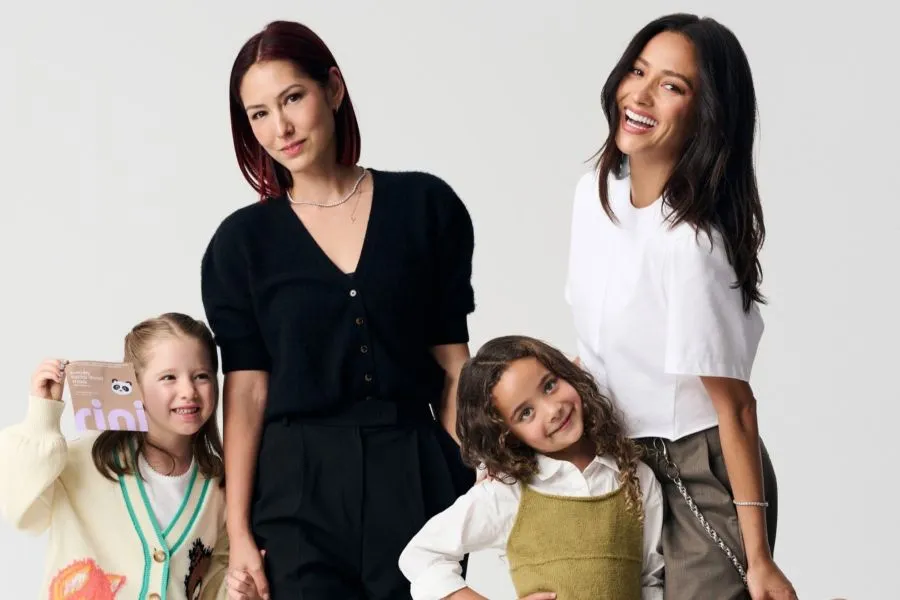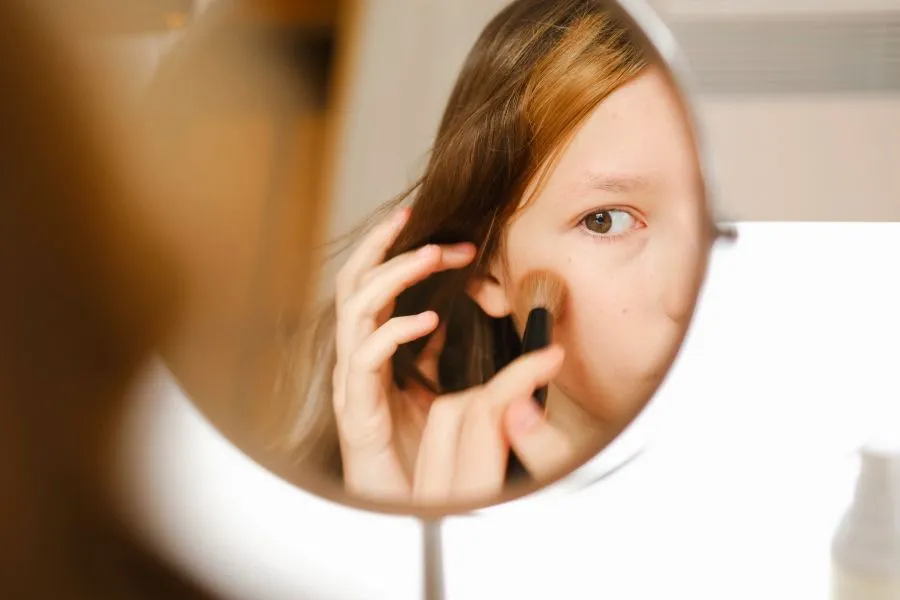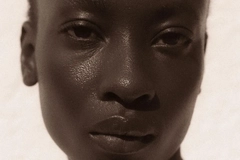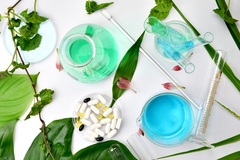Rini skin care for toddlers debuts to online backlash
Key takeaways
- Rini, a new kids’ skin care brand by Shay Mitchell, faces backlash.
- Critics link the controversy to growing concerns about youth beauty culture.
- The brand also faces criticism for using a potentially derogatory term as its name.

Rini, a new skin care brand designed specifically for kids, has debuted with a chorus of criticism.
Founded by actress Shay Mitchell, Esther Song, and Matte Babel, Rini is “designed to inspire curiosity and confidence while supporting healthy habits from an early age.” However, the release comes in tandem with growing concerns about children using skin care.
The dermatologist-tested products are created in collaboration with pediatric chemists and laboratories in South Korea. The brand claims to deliver thoughtfully made products that families can trust. Each proprietary formula meets the requirements of the EU Cosmetic Regulation (EC) 1223/2009, which prohibits or restricts over 1,700 ingredients.
Despite the safety assurance marketed by Rini, the brand announcement was met with immediate backlash. The brand imagery portrays very young children, as little as toddlers. Many consumers are asking why young kids need a skin care brand in the first place.

Meanwhile, Rini says it fills the “need for safer, more innovative, and restorative care for children’s delicate skin.” Citing face paint, makeovers, and dance recital makeup, the brand says kids are often exposed to products that aren’t formulated for them.
“The idea for Rini came from real parenting moments, when we realized the products we wanted for our kids simply didn’t exist,” says Mitchell.
Controversy and critiques
The comment section of co-founder Mitchell’s Instagram announcement of the brand is filled with disapproval.
Mom influencer, @just_chill_mama, wrote simply, “Horrified” below the post.
 The introduction of the Rini brand has sparked backlash online.Another commenter said: “What does a literal child need self-care for!? And the formulas do nothing, so you literally let parents pay for a product that does nothing. And the signal it sends to young girls is that they shouldn’t age and look like they’re never getting older than 8 years. This is so so wrong and so harming for young girls.”
The introduction of the Rini brand has sparked backlash online.Another commenter said: “What does a literal child need self-care for!? And the formulas do nothing, so you literally let parents pay for a product that does nothing. And the signal it sends to young girls is that they shouldn’t age and look like they’re never getting older than 8 years. This is so so wrong and so harming for young girls.”
Through scrolling, almost all that can be seen are negative comments. One user posted, “The comment section restored my faith in humanity.”
The disdain for the brand launch can be attributed to the rise of discourse against “Sephora kids.” In 2024, social media erupted with complaints about children delving into adult skin care and becoming enamored with anti-aging products.
The tweens received their name after older generations criticized their behavior at the beauty retailer Sephora. They were seen demanding expensive skin care from their parents and buying up what was in stock. At the time, the biggest brand among the “Sephora kids” was Drunk Elephant. Some suspect Drunk Elephant’s association with the trend hurt its financial performance.
The rising solicitude has even garnered attention from lawmakers. Earlier this year, California, US, Assemblymember Alex Lee introduced legislation to ban anti-aging products for minors.
Despite negative backlash, the children’s skin care industry continues to grow. In September, Sincerely Yours, a skin care brand developed for teenagers, launched exclusively in Sephora stores across the US and online.
Name game
The debate on whether children should be dabbling in skin care is not the only controversy Rini has found itself in, only four days post-debut. Its name is also being called into question.
The brand says Rini is a colloquial term for children in Korean, representing ages two to teen. However, the National Human Rights Commission of Korea has identified it as a derogatory or inflammatory term, saying it can demean children. The watchdog says the translation is more closely aligned to describe a beginner in a specific field.
The National Human Rights Commission of Korea has ruled against using the term in official spaces.
All Rini products are crafted in Korea. Debate grows over child beauty trends.
Debate grows over child beauty trends.
“World first” for kids
The brand debuts with the “world’s first” hydrogel masks explicitly created for kids. The five-piece launch collection includes a hydrogel mask in two formulas, hydrating and after-sun, alongside everyday sheet masks in puppy, unicorn, and panda designs.
The after-sun hydrogel mask is 94.8% natural origin, aloe vera–based. It is designed to soothe and heal sunburns, chafing, and environmental stress. The hydrating hydrogel mask is 95.6% natural origin, infused with Vitamin B12 to nourish and hydrate. The everyday sheet mask is 93.5% natural origin, made of 100% cotton sheets, and features a proprietary serum of white tremella mushroom extract, beta-glucan, and vitamin E.
“It’s about nurturing their imagination and confidence, while knowing we’re choosing products made thoughtfully for their skin,” says co-founder Song about the brand.
A dedicated regulatory team and pediatric toxicologist facilitate all clinical testing and toxicity risk assessments. Findings from Rini product testing will be openly shared in “Formula Facts,” an online source for consumers.
Rini anticipates releasing a complete collection by Summer 2026.












